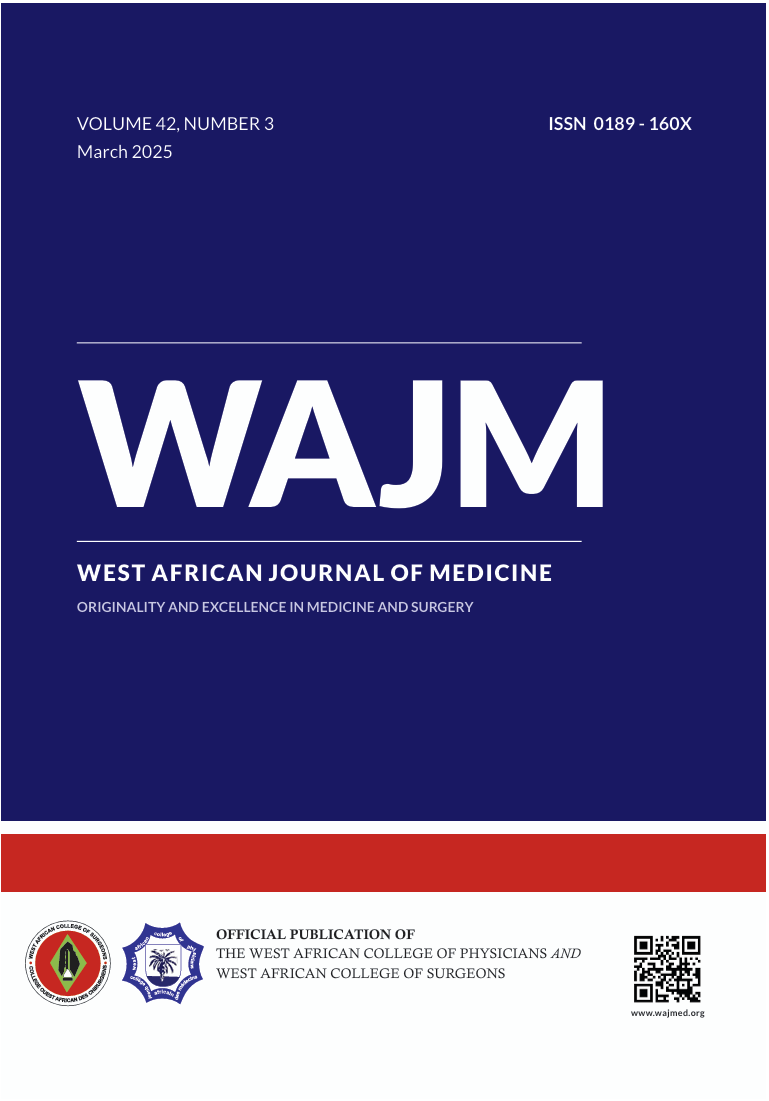ORIGINAL: Assessment of Income Sources and Purchasing Power of the Elderly in a Rural Community, Anambra State, Nigeria
West Afr J Med. March 2025; 42 (3): 169-177 PMID: 40844958
Keywords:
Anambra State, Elderly, Healthcare barriers, Income sources, Purchasing powerAbstract
Background: The rapidly growing elderly population in sub-Saharan Africa, particularly Nigeria, poses challenges due to diminished income-generating ability and limited social safety nets. As income-generating ability decreases with age, elderly people become increasingly vulnerable economically.
Objectives: This study sought to assess income sources and purchasing power among elderly residents in Ukpo, Dunukofia Local Government Area (LGA), Anambra State.
Materials and methods: After obtaining approval from the ethics and research committees in Nnamdi Azikiwe University Teaching Hospital, a cross-sectional study involving 185 elderly residents in Ukpo, Dunukofia LGA in Anambra state who met the eligibility criteria, was conducted. They were selected using a multistage sampling technique from 1st March to 1st August 2024. Data was collected via pre-tested, semi-structured, interviewer-administered questionnaires and analysed using Statistical Package for Social Science (SPSS) software, version 25.0 (IBM Inc., Armonk, New York, United States). The level of significance for this study was set at p ≤ 0.05.
Results: A total of 185 elderly residents with a mean age and standard deviation of 71.12 ± 8.21 years participated in the study. Most respondents were female (75.7%), widowed (50.3%), and Christian (96.8%), with nearly half living on less than ₦10,000 per month. Relative remittances were the primary income source, and many struggled to afford necessities. No significant relationship between income and health status was found.
Conclusion: The findings highlight the economic vulnerability of the elderly and suggest the need for targeted interventions. Future research should focus on longitudinal studies to better understand income dynamics.


